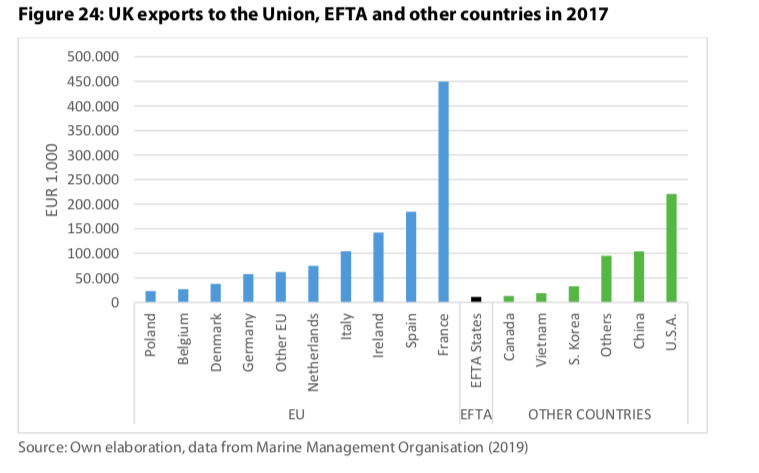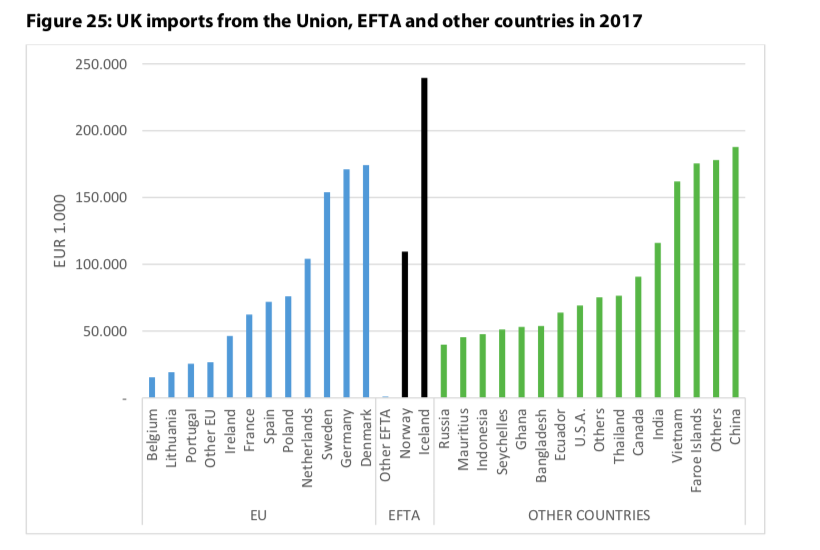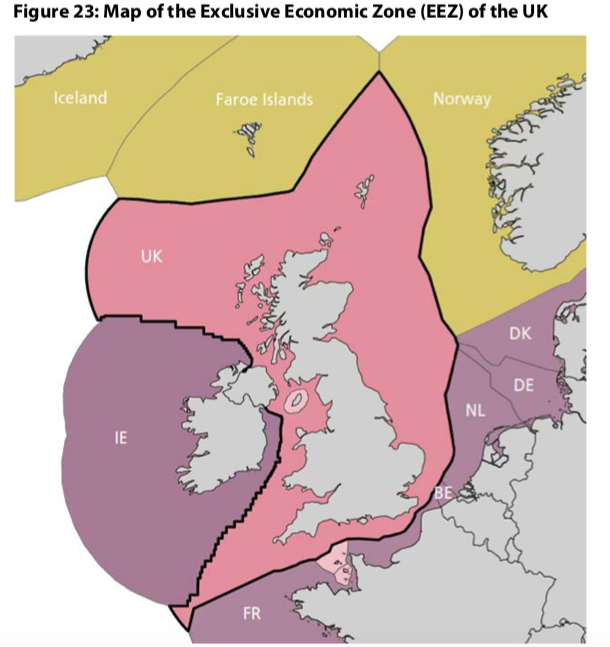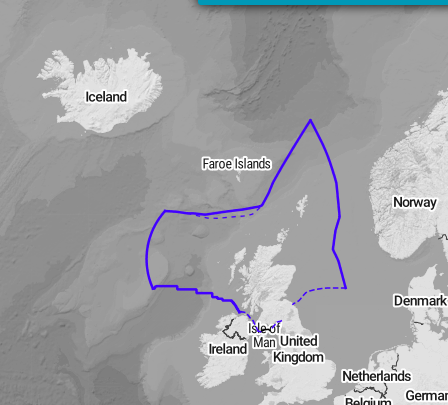It is good to come across sober and informed public policy analysis. It is remarkable to come across it reading a report on fisheries and Brexit.
The European Parliament has given the new fisheries committee a useful resource.
You can read it here.
The report provides a fact-filled analysis for the new MEPs for the fisheries Committee. I hope they take the time to read it.
It helps clear up things on several points.


First, the British people don’t seem to like a lot of the fish the British fleet catch. The British seem to like Icelandic and Norwegian cod and Chinese Pangasius.
Second, the British fleet exports a lot of fish to the European mainland.
Third, key parts of the UK fishing industry are kept going by European workers, whether on the vessel crew (25% in Scotland) or processing sector (58%).
Fouth, departure will lead to heightened tariffs on fish exports, some high, is likely.
Fith, and not surprisingly, around 20% of the UK quota is owned by companies whose parent company is another EU country. That’s because a lot of British fishermen cashed out and sold up at considerable profit years ago.
Finally, if Scotland chooses to rejoin the EU, the UK’s EEZ shrinks by around half.

This will shrink if Scotland chooses to return to the EU.

Source:
The demand for British fish in the EU27 is not likely to disappear with Brexit; high tariffs will be borne by the consumers in those countries. The EU is trying to encourage its citizens to eat more fish as part of a healthy diet, so high tariffs would be counter-productive. However, the EU is not above cutting its nose off to spite its face, so it will be interesting to see how it all develops.
David, Europeans already pay higher tariffs for some fish from other non-EU countries. So, applying the same tariffs, some high and some low, will fall on the UK’s exports. It was clear from the beginning. Aaron